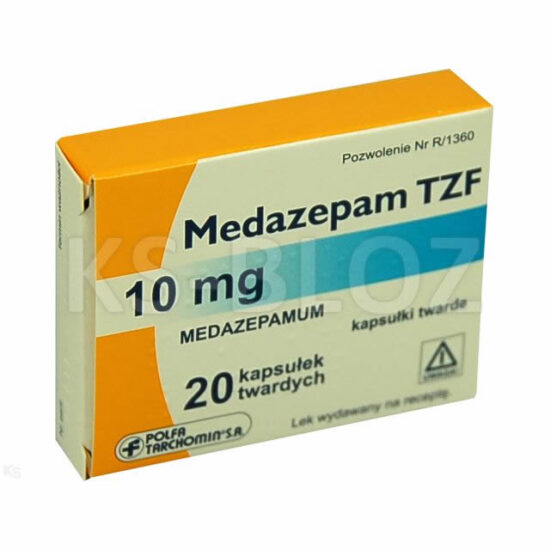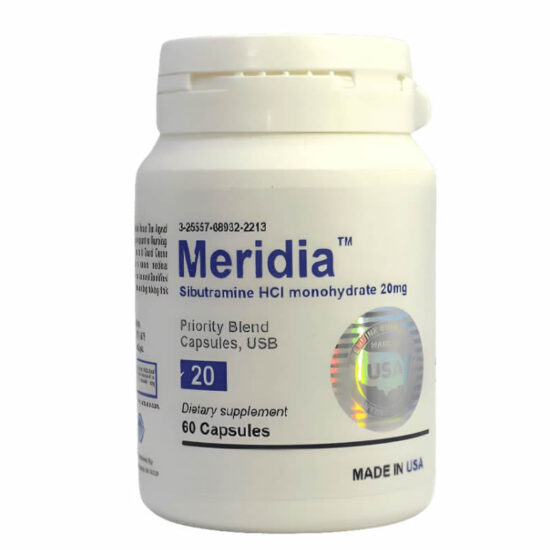Description
Buy Adipex 37.5 mg Online – Effective Prescription Weight Loss Medication
Adipex 37.5 mg is a powerful prescription weight loss medication containing phentermine, a stimulant similar to amphetamines. It is designed to help obese individuals lose weight by suppressing appetite, boosting energy, and promoting a feeling of fullness, making it easier to stick to a reduced-calorie diet.
How Does Adipex (Phentermine) Work?
Adipex stimulates the central nervous system, increasing the release of neurotransmitters like norepinephrine and dopamine, which help reduce hunger and enhance metabolism. It is intended for short-term use alongside a structured weight loss plan that includes:
-
A low-calorie diet
-
Regular exercise
-
Behavioral changes
Dosage & Administration
-
Recommended Dose: 37.5 mg once daily in the morning (to avoid insomnia).
-
Duration: Typically prescribed for a few weeks to avoid dependency.
-
Do not crush or split the tablet—take it whole with water.
Who Can Prescribe Phentermine?
Phentermine is a controlled substance, meaning only licensed healthcare providers can prescribe it, including:
-
Primary care physicians
-
Endocrinologists
-
Bariatricians
-
Psychiatrists
-
Nurse practitioners & physician assistants (depending on state laws)
Eligibility Requirements
To qualify for a phentermine prescription, you must meet BMI criteria:
-
BMI ≥ 30 (Obese) – Eligible without additional conditions.
-
BMI ≥ 27 (Overweight) – Eligible if you have weight-related conditions like diabetes, hypertension, or high cholesterol.
Your doctor will also review your medical history to rule out contraindications.
Key Questions to Ask Your Doctor Before Taking Phentermine
-
How long will it take to see weight loss results?
-
Should I get additional tests to determine the cause of my weight gain?
-
Can my current medications interfere with phentermine?
-
What lifestyle changes should I make to maximize results?
-
What are the most common and serious side effects?
-
Are there alternative weight loss medications if phentermine doesn’t work?
Common Side Effects of Adipex 37.5 mg
-
Increased heart rate
-
Dry mouth
-
Insomnia
-
Restlessness
-
Dizziness
-
Constipation or diarrhea
Serious Side Effects (Seek Medical Help Immediately)
-
Severe chest pain or palpitations
-
Shortness of breath
-
Swelling in legs/feet
-
Severe hypertension
-
Allergic reactions (hives, swelling, difficulty breathing)
Contraindications & Precautions
Who Should NOT Take Phentermine?
-
People with heart disease, hyperthyroidism, or glaucoma
-
Those with a history of drug abuse
-
Pregnant or breastfeeding women
-
Patients taking MAOIs (must wait 14 days before starting phentermine)
Drug Interactions
-
Antidepressants (SSRIs, MAOIs)
-
Blood pressure medications
-
Diabetes medications
-
Other stimulants (e.g., ADHD drugs)
Where to Buy Adipex 37.5 mg Online?
You can purchase genuine Adipex 37.5 mg from trusted online pharmacies like Online RX Shop. Always ensure you have a valid prescription before ordering.
Explore Other Weight Loss & Prescription Medications
-
Phentermine – Alternative brand
-
Meridia – Another weight loss aid
-
Adderall 30mg – For ADHD (also suppresses appetite)
-
Ambien 10mg – For insomnia (if phentermine affects sleep)
Final Thoughts
Adipex 37.5 mg can be an effective tool for weight loss when used responsibly under medical supervision. Always follow your doctor’s instructions and combine it with diet and exercise for the best results.
Ready to start your weight loss journey?
👉 Buy Adipex 37.5 mg Online Now
For more options, check out our full range of prescription medications at Online RX Shop.
Disclaimer: This medication requires a prescription. Consult a healthcare provider before use. Do not exceed recommended dosage.








Reviews
There are no reviews yet.